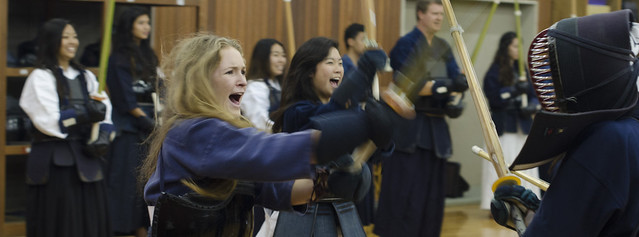But the best-laid schemes o' mice an' men, as they say, gang aft agley. And with the likes of Maru, Stack-cat and Nya-Suke on YouTube, I really have no chance of getting to bed before midnight.
Things never go quite as planned. This is especially true when you’re relying on other people’s motivation for success.

A few weeks ago, 2A-Oral Communication left for their Language Training excursion in Torrance, CA. And every week leading up to that since mid-spring, Kashew and I were tasked to provide the students with conversational and cultural instruction that would be beneficial to their experience in America. And though, early on, because the trip seemed so far off in the future, they would struggle to pay any attention to what we had to say, by the time it dawned on them that they would actually be flying to America, they felt under-prepared and overwhelmed by the burden of international travel and cross-cultural interaction.
Over and over again, the students would tell us that they were embarrassed that they could not speak English like a native speaker, that they were afraid that the Americans would think that they were dumb and ignorant about many facets of American culture.
We would listen patiently, nodding in understanding, having shared acutely our own daily experience with the very stress they dread, from shopping at the convenience store, to ordering dinner, to getting haircuts, or trying to schedule weekend activities. No matter how much Japanese we learn, no matter how Japanese we may feel, there are always aspects of Japanese culture that we are not yet privy to, in a way that makes cross-cultural understanding seem more like sifting through quicksand than checking off lessons listed in a textbook.
But, on the other hand, I want to yell at them. What they were dreading was the prospect of being uncomfortable, the mere "likelihood" of misunderstanding. Firmly rooted in their fear of unknowing, I want to shake them out of their risk-adverse hesitancy because, guess what: Surprise!, they aren't native English speakers and, double surprise!, they don’t know anything about American culture. And double-plus surprise!, their host families already know that.
But, as such, we tell them that this is their golden opportunity to 遠慮しない, to act without reservation. That while international travel is scary and cross-cultural exchange is intimidating, a study-abroad trip is the time to explore those scary and intimidating things with as little risk as possible because everyone there knows you came to learn. So there is no shame in ignorance. There is no shame in not knowing. Because you came to learn.
So if they have a question, they should feel free to ask it. If they have a curiosity, they should feel free to explore it. Ask freely, explore freely: the host families sighed up because they want to share their culture as much as they want to learn about Japan.
So that should be our target framework.

One thing that I wanted Kashew to be conscious of as we designed our 2A prep classes is that our goal should be to remove the barriers that the 2A students may face when going to America. We want to facilitate the cultural exchange experience. So whether that be by lowering stress levels by teaching students how not to get lost or "randomly selected" for inspection by TSA at the airport, or teaching them about refrigerator rights or how Americans join the toilet room and the shower room in one, all-encompassing mega-room called the "bathroom," our target is to prepare them for their stay with their host families, because it is their experience with their host families that will teach them more about culture and the value of exchange than we ever could.
We want to facilitate the cultural exchange experience, not replicate it or replace it.
Rather, I believe that if we teach them everything there is about American schools and American eating habits before they leave for America, we're taking valuable exchange experiences away from our students and their host families.
I don't care so much to give them the answers to all of the questions about America before they get there. What I want to teach them before they go is how to ask those questions of their host families and then have to be asked those same questions of themselves.
So we teach them how to talk about their opinions and express their desires. We have them practice how to ask and then listen to the answers. We show them some of the things they will see and do in the hopes that they will start thinking about what they will experience and what they can talk about. All in an attempt to reframe their approach to the exchange program from "risk" to "opportunity."
But no matter how many times we yell at them not to be afraid to take the chance and use their English, that is a decision that they have to make. One we hope they decide to make before they go to America, and not on their way back.
No comments:
Post a Comment